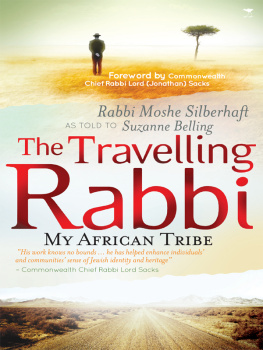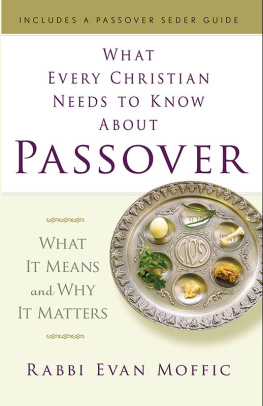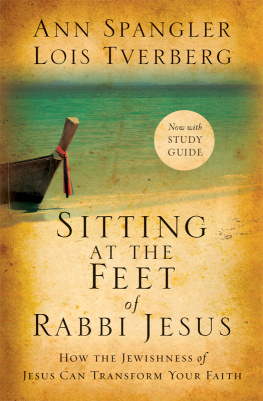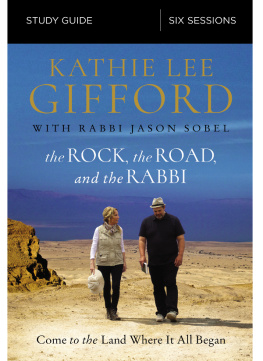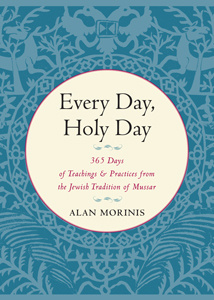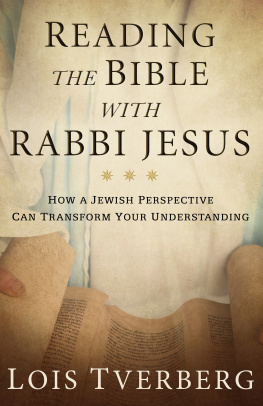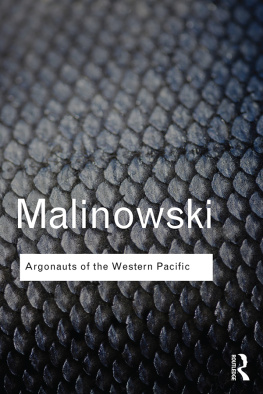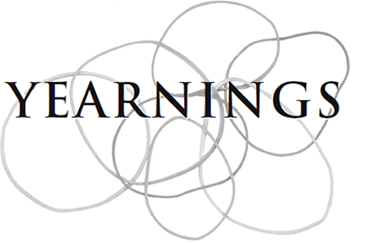C ONTENTS
YEARNING FOR
TRUTH
YEARNING FOR
MEANING
YEARNING FOR
THE WAY
YEARNING FOR
LOVE
YEARNING TO
CREATE
YEARNING FOR
HAPPINESS
YEARNING FOR
TRANSCENDENCE
YEARNING. AFTER TWENTY-THREE YEARS AS A RABBI, I can think of no more defining human experience. So many people speak to me about their longing to answer lifes deepest questions. Especially in recent years, when world events seem to be more confusing and frightening, people are looking for a center that can hold in what they see as a growing wasteland of conflicts and contradictions. They yearn for peace that comes from unity. They seek enduring truths. They hope for comfort and guidance.
Great wisdom traditions are born of this desire for answers, this urge to make sense out of chaos and discover what really matters in life. What we forget in the rush of modern lifea lapse that I believe intensifies our fearis that these yearnings are no different today than they were in the times that gave rise to such mystic visionaries as Moses, Buddha, and Jesus. In those times, too, people were challenging traditional ideas and beliefs, and asking new questions. Institutions they had always relied on were changing, and even tumbling down. Old ways of believing, behaving, and belonging that provided meaning and security were dying and new ways had not yet been born. Like us, people were at once fearful and excited, uncertain yet animated about emerging truths and understandings.
Whether its Buddhism, Christianity, Islam, or Judaism, wisdom traditions are rich with methods and philosophies designed to support and guide us, to help us explore and deepen our understanding of ourselves and the world. These traditions are meant to be lived. Yet so much of their wisdom is buried under centuries of dogma. Often they become a means of claiming the superiority of certain religions, cultures, and ideologies. The need to be right is winning out over the search. Ideas and insights meant to illuminate the human experience, to explore conflicts and dualities, are being used to dampen, dispel, or repress exploration and conversation, sometimes erupting into culture wars or violence.
As the world around us becomes more confusing and frightening, many of us have turned inward to find some kind of solace. The quest for self is the contemporary quest for God. We want to know exactly who we are. We want to find perfect love; to feel enduring happiness and fulfillment; to know that our work will make a difference in the world. And this personal search for purpose, joy, and contentment can be just as noble as the search for grand philosophical truths and global solutions.
Wisdom traditions are meant to be lived.
This is a psychological age, the era of self-improvement and personal growth, one that offers a unique opportunity to explore and re-engage with wisdom traditions. All the contradictions and conflicts that we experience in the world are born deep within our consciousness. When we look into our selves and discover what is radiant and dull, ugly and beautiful, clear and confusing, harsh and gentle, it isnt just ourselves were discovering; were unfolding the mysteries of the universe. If we can become aware of these polarities; embrace them, even celebrate them, we are taking a giant step toward what the mystical tradition of Kabbalah calls repairing the world.
Americans are sometimes accused of being blindly optimistic and materialistic. We want it all. And this does have its drawbacks. We can become overly driven or consumed by our desires. But, paradoxically, if we dont want it all, well never find enough. Well never come close to reaching our own potential. At the same time, if we forget that were always wanting and always finding, meaning will continue to elude us, and so will the love and joy we seek.
Our yearnings generate life.
Our desire animates us.
Jewish wisdom teaches that our yearnings generate life. Desire animates. As the prophet Amos says, Seek Me and live. Jewish wisdom urges us to go for it, to seek answers to our deepest questions, to search for spiritual and personal fulfillment while knowing we will never finally get thereoh, but the discoveries well make along the way! We are meant to live, to search with intention. When we can uncover our deepest longings for intimacy, pleasure, creativity, and self-understanding, life yields illumination and happiness. Far from being a burden, our desires themselves become a path to blessing.
Jewish wisdom offers powerful ideas and tools for living with the anxieties of contemporary life: its ambiguities, its contradictions, its insecurities. I hope it wont sound grandiose to say that I want to help create a new understanding of our contemporary experience by digging deep into this ancient tradition.
Through both contemporary and biblical stories, I will explore methods of the sages, showing how we can use this wisdom to examine our own lives. These will not be lessons about overcoming all odds, obeying some external command, or finding some ultimate truth. Rather, they will be teachings that celebrate the inevitable messiness of life, of living with grace in uncertainty. Far from keeping us in line, this wisdom tries to push us off line. Crossing boundaries is the only way to grow. No one knew this better than the biblical authors who wrote about generations of transgressors and adventurers whose yearnings and foibles pushed them beyond their familiar selves; whose journeys took them to the place between meaning and meaninglessness, to the borders of promised lands.
Rather than teach absolute truths, Jewish teachings invite us to dance with dualities and contradictions: Life and Death; Hate and Love; Right and Wrong; Sorrow and Joy. There is no perfect balance nor final solutions; no end to the highs and lows, to the darkness and the light. And thank God, because theres so much richness, so much dimension, in those tensions and anxieties; so many opportunities to deepen our understanding. Building a life is an endless and glorious project.
The practices and insights in this book are based on teachings that have evolved over three thousand years. Generations of mystics and sages have wrestled with profound questions and challenges, the messiness and complexities of the human experience, and they invite us to do the same. There are no scripts to be found in their many texts, no fixed choreography to be followed in the dance of life. Rather, this wisdom is an intricate improvisation, complete with rhythms, melodies, cues, and many dancing partners to accompany us, teach us, and support us.
Jewish wisdom invites us to allow sadness into the circle of joy, to bless our carnal pleasures, to fully express our grief, to both give and receive with generosity. Our most intimate relationships or, in religious language, our covenantal relationships are often the most challenging improvisations: dances of pain and forgiveness, excitement and boredom, hunger and satisfaction. Our jobs and careers are the playgrounds for our yearnings for success and accomplishment; where we play out patterns of childhood and our need to make a difference in the world; where we struggle with failure and financial need; where we compete and create partnerships.


